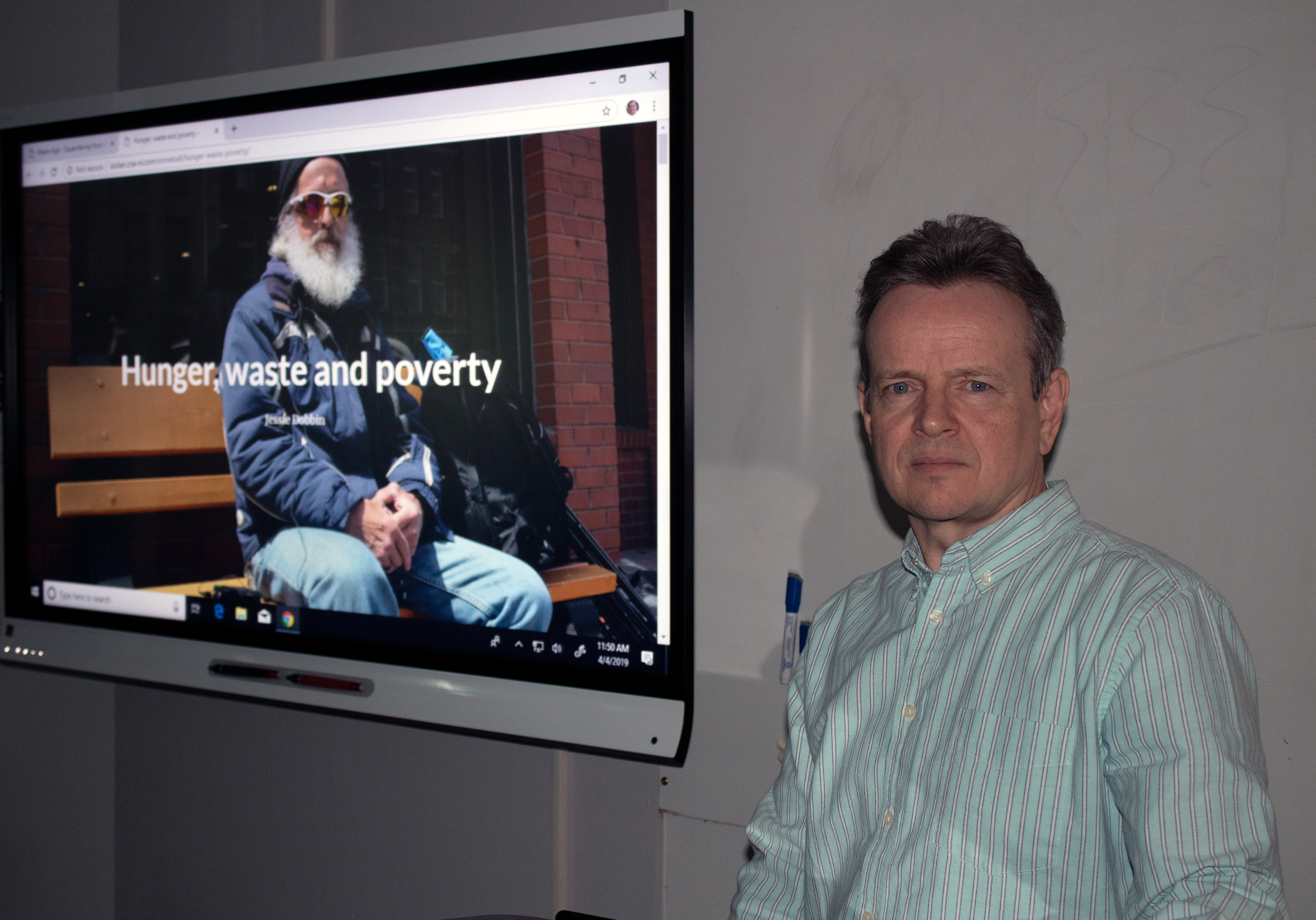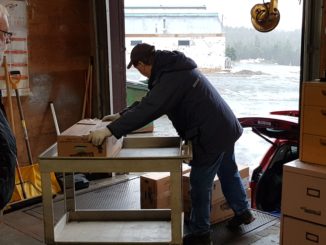Kicker has been nominated along with journalism programs from King’s College and Nova Scotia Community College.
Stephen Miller
Kicker

For student journalists learning their craft and finding their footing, a little recognition can go a long way. So being nominated for an Atlantic Journalism Award is quite an accomplishment.
Kicker’s graduating class of 2018 received a nomination in the best student journalism category on April 3. They are nominated for their collaborative efforts on Waste Age, a feature series that examined issues surrounding food wastage in Newfoundland and Labrador.
Beth Penney, now of NTV News, was a member of the class that is nominated.
“I didn’t even realize it had been submitted; it wasn’t even on my mind,” said Penney. “But I’m really proud because everybody worked so hard.”
For Waste Age, each of the students involved produced a text feature, a video, an informational graphic and also took part in a public forum that was broadcast live on Rogers TV.

Penney focused on issues surrounding food transportation and distribution in the province and how it leads to food wastage.
She looks forward to doing more stories on the topic in the future but also fondly recollects her time working on the project, especially the live forum.
“You could really feel the adrenaline there that day,” said Penney. “We did it down in Atlantic Place and it was really nerve-wracking, but it was such an important topic and we got a fairly big crowd to come out.”

Mike Moore is now a contributor for CBC NL. Like Penney, he was a part of the Waste Age project.
Moore had looked at food wastage problems in the province from an economic standpoint. He was saddened to learn that per capita, Newfoundland and Labrador is the worst offender for food wastage in Canada, with the average household wasting $3,000 in food annually.
“We’re a place that lived off the land for so long,” Moore said. “Wasting food seems like something that shouldn’t be in our habits.
“If you have a nan in Newfoundland and you throw something out, she’s gonna snap.”
When it comes to giving credit for the project’s success, Moore points squarely at Frank Carroll, the lead instructor on Waste Age.
“Frank, he was the driving factor and kept us all on our toes and kept us pushing,” Moore said.

One of three of the core instructors, Carroll specializes in print and digital journalism. He has been an instructor in the program for more than 19 years.
“I think a lot of students, when they come here, they don’t know what they’re capable of,” Carroll said.
“So expecting a lot of them helps them come to the realization that they’re more capable than they think they are.”
This approach seems to have paid off with the Atlantic Journalism Award nomination.
Carroll chose the subject, recognizing a lack of local reporting on the subject of food wastage, but the students executed it wholeheartedly.
Instructor Jonathan Crowe was instrumental in guiding the production of the live forum, along with Erin Sulley and Brian Dawe of Rogers.
It was a learning experience for all the students involved.
“The students uncovered stuff that I didn’t know and I think they learned a lot about reporting along the way,” Carroll said.
While Carroll is all business when it comes to journalism, he made sure to express his pride in the good work of his students and the tenacity they displayed in bringing the project to life.
“Once we wrapped the live production, I told them that they had done something really hard and that I was proud of them for that.”
Also nominated for the best student journalism award:
- Nova Scotia Community College’s WTV Media for After Cornwallis, an investigation into whether Halifax is meeting its commitments toward Indigenous citizens in accord with the Truth and Reconciliation Commission;
- University of King’s College’s The Signal for Terms of Service, an investigation into data collection by companies such as Facebook and Google.
The winner will be announced at a ceremony in Halifax on May 11.
This is the second year in a row that a CNA journalism project has been nominated for a Atlantic Journalism Award.




Be the first to comment